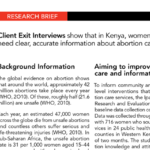
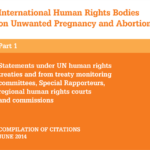
This publication, which contains four different parts and was updated in June 2014, presents human rights agreements, treaties and policies that address maternal mortality, unwanted pregnancy and abortion as they relate to global reproductive rights work. Part 1: Statements under UN human rights treaties and from treaty monitoring committees, Special Rapporteurs, regional human rights courts and commissions
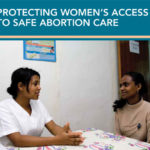
This resource is primarily intended to help legal and policy advocates utilize the concept of privacy to support providers in guaranteeing women’s right to confidential abortion care. Health-care professionals may also find the resource provides useful guidelines on protecting patient privacy. Included is a review of providers’ ethical obligations to maintain confidentiality, a review of human rights protections related to privacy in health care, and an analysis of how confidentiality is treated in different national laws. This resource will also show that requiring providers to report women suspected of obtaining unlawful abortions violates protections of privacy and confidentiality under international human rights law.
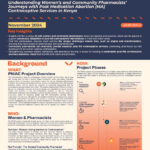
These learning briefs – a project anchor brief, a user-focused brief, and a pharmacist-focused brief – summarize lessons learned by the PMAC project during multiple phases of the project.
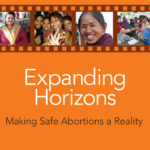
This publication highlights the critical role Ipas Nepal has played in the introduction and expansion of safe abortion services in Nepal since 2002, when abortion was decriminalized. Between July 2011 and December 2013, services provided in Ipas intervention facilities averted an estimated 50 maternal deaths, more than 22,000 unsafe abortions, and saved more than $450,000 in direct health-care costs.
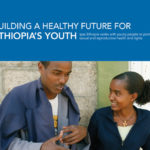
This publication describes Ipas Ethiopia’s comprehensive approach to addressing the sexual and reproductive health and rights of young people. Ipas supports university-based “Help Points” and community-based Reproductive Health Corners that provide youth-appropriate information and counseling on sexual and reproductive health, with a focus on contraception, unwanted pregnancy and safe abortion.
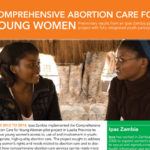
From 2012 to 2014, Ipas Zambia implemented the Comprehensive Abortion Care for Young Women pilot project in Lusaka Province to improve young women’s access to, use of and involvement in youth-appropriate, high-quality abortion care. This brief focuses on the first two objectives of the pilot project, which sought to address young women’s rights and needs related to abortion care and to document how comprehensive abortion care services can be made more appropriate for young women through youth participation in all aspects of the project design, implementation, monitoring and evaluation.
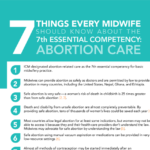
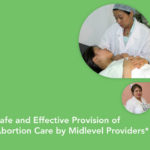
Two-page fact sheet outlining the evidence showing that midlevel providers—such as midwives, nurse practitioners and clinical officers—can provide first-trimester vacuum aspiration and medical abortions as safely and effectively as physicians.
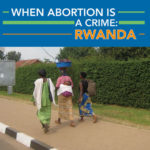
This two-page fact sheet is drawn from a report by Ipas and the Great Lakes Initiative for Human Rights and Development on the legal and human rights impact of Rwanda’s 2012 abortion law. The report found that Rwandan police unjustly harass, arrest, prosecute and imprison hundreds of women and girls on abortion or infanticide-related charges each year and calls on the Rwandan government to take steps to address this ongoing human rights violation.
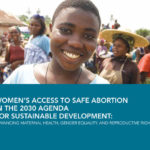
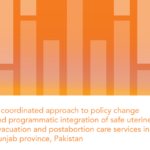
This brief describes the advocacy efforts, led by Ipas Pakistan and local partners, to integrate WHO-approved approaches (UE methods and training of additional cadres of providers) into the healthcare system. In particular, it details the work done to establish the Punjab Reproductive Health Technology Assessment Committee (PRHTAC)—a provincial body formed to review existing evidence on UE technologies, address concerns about stigma, examine a legal basis for clinical expansion to MLPs, consider the financial implications of new technologies, and, ultimately, to make recommendations/changes for the adoption of misoprostol and MVA into the local healthcare system.

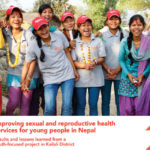
This brief presents results and lessons learned from a youth-focused project in Kailali District implemented between 2012 and 2014. The project demonstrated that, working in consultation with health-care providers and other adults, young people can play a meaningful—even essential—role in improving the quality of sexual and reproductive health services for young people. It also showed that young people, with appropriate training and support, can effectively inform and counsel their peers about sexual and reproductive health and rights, including abortion.
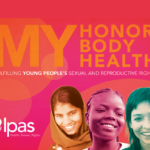
This booklet describes Ipas’s work with youth to promote their sexual and reproductive health and rights. With facts and concise explanations—plus illustrative stories from Nepal, South Africa and Ecuador—the booklet highlights the challenges young people face and the opportunities for them to become leaders and work with adults to design policies and health services that are youth appropriate.
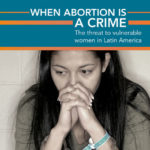
This report analyzes the findings of an Ipas investigation into the enforcement of laws criminalizing abortion in three South American countries—Bolivia, Brazil and Argentina—and is the first in a series of Ipas reports on criminal abortion laws in countries around the world. It documents accounts of hundreds of women and health-care providers who have been arrested, charged, detained and sometimes imprisoned for violating abortion-related laws. It calls on governments with restrictive abortion laws to remove abortion from criminal or penal codes and treat it as any other health-care service.
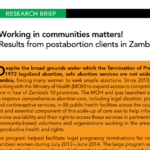
This two-page research brief looks at the results of client exit interviews conducted in 2014 with 616 Zambian women who sought a safe and legal pregnancy termination. The interviews explored issues of quality, service delivery and information dissemination as perceived by the women themselves—a perspective often neglected in reproductive health.
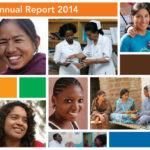
Ipas’s mission to reduce deaths and injuries from unsafe abortion and to increase women’s ability to exercise their sexual and reproductive rights is comprehensive. This report provides a snapshot of the breadth of Ipas efforts, highlighting fiscal year 2014 (July 2013-June 2014) results.
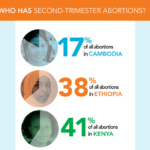
This two-page fact sheet presents the evidence showing that second-trimester abortions disproportionately affect the most vulnerable and underserved populations—including young women, women facing financial barriers to accessing health care, victims of violence and women with significant medical conditions.
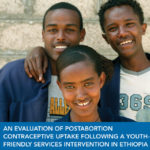
This brief describes a study to evaluate the sustained uptake of postabortion LARC (IUDs and implants) among young women after a youth-friendly services (YFS) intervention by Ipas in Ethiopia.

